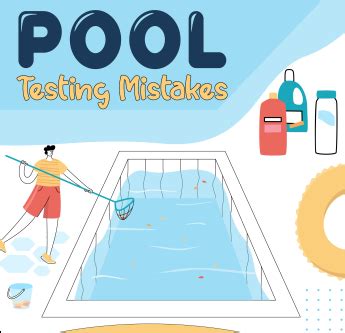Frustrated with Your Pool? Perfect Testing Might Help
Is your swimming pool looking less than pristine? Cloudy water, persistent algae, or irritated skin after a swim? Before you throw your hands up in frustration, consider this: the solution might be simpler than you think. Often, the root cause of pool problems lies in imperfect water testing. Accurate testing is the cornerstone of proper pool maintenance, allowing you to proactively address imbalances before they escalate into major headaches (and expenses).
Why is Accurate Pool Water Testing So Important?
Proper pool water chemistry is crucial for a number of reasons:
- Clear, Sparkling Water: Balanced water chemistry is the foundation of crystal-clear water. Imbalances lead to cloudiness, algae growth, and other unsightly issues.
- Healthy Swimming Experience: Incorrect chemical levels can irritate skin and eyes, making swimming uncomfortable or even harmful.
- Protecting Your Pool's Investment: Neglecting proper water chemistry can damage your pool's equipment and structure, leading to costly repairs or replacements.
- Preventing Algae Blooms: Maintaining the correct balance of chemicals prevents algae from taking hold, saving you time, effort, and money on treatment.
What are the Key Pool Water Parameters to Test?
Several key factors determine your pool's overall health. Regular testing of these parameters is essential:
- pH: This measures the acidity or alkalinity of your water. The ideal range is typically between 7.2 and 7.8. An imbalance can affect the effectiveness of other chemicals.
- Total Alkalinity: This refers to the water's ability to resist changes in pH. Maintaining the correct alkalinity level helps keep your pH stable.
- Calcium Hardness: This measures the amount of calcium dissolved in your water. Low calcium can cause etching on your pool's surface, while high levels can lead to scaling.
- Sanitizer Levels: This is typically chlorine or bromine, responsible for killing bacteria and other harmful microorganisms. Maintaining the correct sanitizer level is vital for a safe and clean pool. Regular testing ensures that the sanitizer is working effectively.
How Often Should I Test My Pool Water?
The frequency of testing depends on several factors, including the pool's size, usage, and climate. However, a good rule of thumb is to test your water at least once a week, and more frequently during periods of heavy use or extreme weather.
What are the Different Methods of Pool Water Testing?
There are several methods available for testing your pool water:
- Test Strips: These are convenient and inexpensive, but they offer less precise results than other methods.
- Liquid Test Kits: These provide more accurate readings than test strips and are generally more affordable than professional testing.
- Digital Testers: These electronic devices offer quick and precise readings of multiple parameters.
- Professional Pool Service: A professional service can conduct a comprehensive analysis of your water and provide customized recommendations.
My Pool Water is Cloudy, What Should I Do?
Cloudy water is a common sign of an imbalance in your pool's chemistry. Before adding any chemicals, test your water to determine the specific cause. Common culprits include low sanitizer levels, high pH, or high total alkalinity. Addressing the underlying chemical imbalance is key to clearing up the cloudiness.
What are the Best Pool Testing Kits?
There isn't one single "best" kit, as the ideal choice depends on your budget and desired level of accuracy. However, many highly-rated kits are readily available online and at pool supply stores. Read reviews and compare features before making a purchase. Remember to always follow the manufacturer's instructions carefully.
How Can I Prevent Pool Problems in the Future?
Regular testing and maintenance are your best defenses against pool problems. Establish a routine testing schedule, and promptly address any imbalances you discover. Consider investing in a good quality testing kit and learning how to interpret the results.
By understanding the importance of accurate pool water testing and consistently monitoring your water's chemistry, you can ensure a safe, clean, and enjoyable swimming experience for years to come. Don't let frustration win—take control of your pool's health with precise and regular testing!

